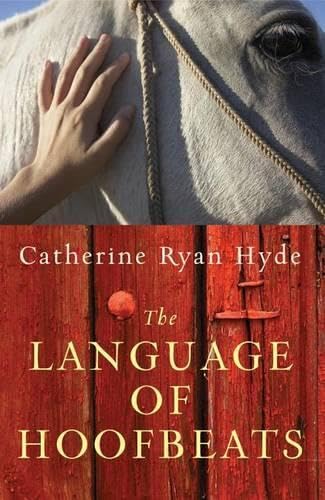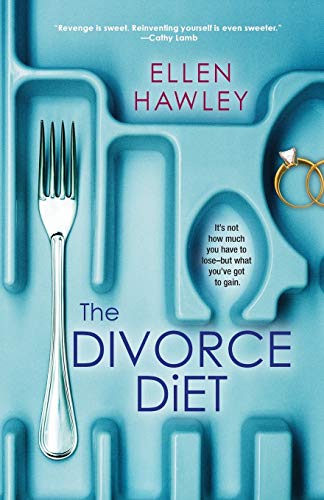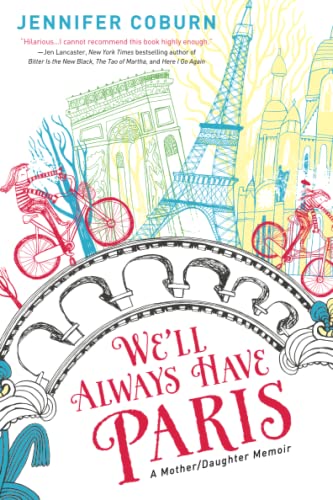There were many reasons that Coburn first decided she wanted to take her eight year old daughter Katie to Europe. She wanted her to experience amazing things, different cultures and people, to see that life is both different and the same in other places. She wanted Katie to be confident and fearless, willing to travel to foreign places, and to escape the anxieties that plague Coburn herself. But perhaps most of all, Coburn was only a teenager when her father died and she never felt as if she got to spend much quality time with him. She didn't want her own daughter to feel this same way about her even if, as Coburn the worrywart suspects, she too will die young. And so she decides to take Katie to Europe instead of fixing up their house or any other myriad of things their family could do with the money spent on a European trip.
Part travelogue, part mother daughter story, part memorial to the father she lost young, Coburn writes lovingly of her experiences through the years as she takes Katie to France, to Italy, to England, to Spain, and to Holland. She captures Katie's generous and accepting spirit and acknowledges her own fearfulness and worry as she learns to let go a little and embrace detours, last minute changes, and inescapable events. Katie's innocence on the first trip fades away but, over the next three trips and eight years, she never loses her openness, wisdom, and interest in new experiences. As Coburn and Katie experience Europe together, sights trigger Coburn's memories of her father. She faces her regret for what might have been even as she learns to live in the moment with her daughter, building sweet memories for both of them that will last forever. The narrative goes back and forth in time between the present of their trips and Coburn's memories of life with her not quite famous singer/songwriter father.
As in many travel memoirs, this is filled with funny personal anecdotes told with humorous turns of phrase. Coburn is up front about the fact that she is insecure and not a seasoned traveler herself so she and Katie rely on the kindness of strangers, often strangers who don't speak their language. As expected, this leads to a number of misunderstandings and tight connections. But the memoir is quite introspective, sometimes too light on the outside setting of the sights and sounds of the places they're visiting. And occasionally Coburn's memories of her father and her deep need for his love overwhelm the story of the memories she's building with her own daughter. But the growth that both Coburn and Katie show over the years and the ways in which they appreciate each other as more than parent and child, as friends really, and these amazing experiences in their lives is lovely. The writing is intimate and accessible; it's like listening to a friend tell you the story of her European vacation. It may inspire other parents to travel with their children or give people places to add to their bucket lists but it will certainly show people one way to learn to live in the moment and appreciate what you have in the here and now. This is definitely a sweet paean to memory: those that we already possess and those we are forever building.
For more, watch the book trailer:
For more information about Jennifer Coburn and the book, take a look at her Facebook page, connect with her on Facebook follow her on Twitter, or take a look at the book's page on GoodReads. Follow the rest of the blog tour or look at the amazon reviews for others' thoughts and opinions on the book.
Thanks to Emma from France Book Tours and the publisher for sending me a copy of the book for review.




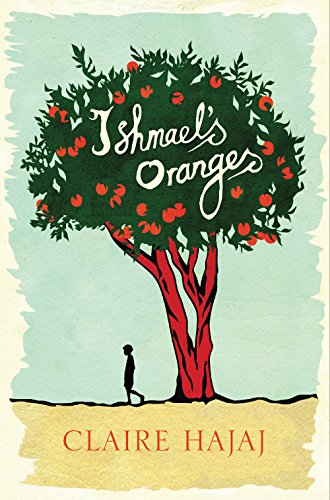
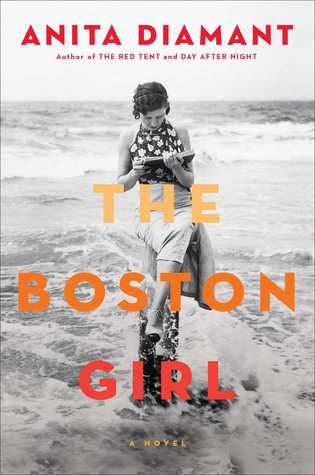

 Just one again and I'm pulling out the Kleenex in prepation. :-) This past week's mailbox arrival:
Just one again and I'm pulling out the Kleenex in prepation. :-) This past week's mailbox arrival: